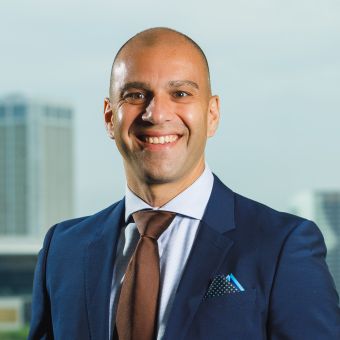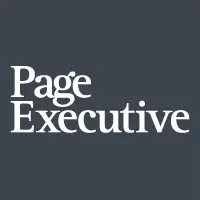Looking to hire your next leader?
Get in touch with one of our consultants now to discuss your leadership talent requirements.


The CHRO role has continued the transformation of recent years. Long gone are the days of overseeing administrative processes; today’s CHROs are at the front line of building company strategy and enhancing competitiveness. While this role has been evolving for years, the pandemic has brought the magnitude of this shift into sharp focus.
In a crisis, what pulls a company through to the other side? Effective talent management has proven to be vital for companies to weather the storm. When unforeseen circumstances rock the boat, it’s the agility of the CHRO that makes the difference in keeping people engaged and committed within a culture of trust.
The CHROs best prepared to navigate this VUCA (Volatile, Uncertain, Complex and Ambiguous) landscape combine business acumen with a people-first approach. So, how can companies find this profile – and how can the CHRO bring maximum impact to organisations today?
The CHRO profile has evolved from supporter of the business to essential business partner. With a focus on people, engagement, reputation and maximising talent potential, modern CHROs play a vital role in developing business strategy. Their ability to build a high-trust culture has become increasingly important in a VUCA world. By connecting people with purpose, today’s CHROs are laying the groundwork for sustainable transformation.
The modern CHRO requires a deep understanding of the business as well as the soft skills to build relationships and lead organisational change. With such multifaceted challenges, the role is ripe for a broad range of talent. According to Jon Goldstein, Global Head of the HR Practice, “The vast majority of CHROs promoted internally don’t come from HR but from other backgrounds, such as finance, sales or marketing. Today’s CHRO has a bigger voice among executives, so this role appeals to different types of people.”
The vast majority of CHROs promoted internally don’t come from HR but from other backgrounds, such as finance, sales or marketing. Today’s CHRO has a bigger voice among executives, so this role appeals to different types of people.
Bringing talent from outside the traditional HR function into the CHRO role is one way to ensure alignment between business and employee wellbeing. Another way to gain fresh perspective is to hire externally. “When companies hire externally for a CHRO, the profiles predominantly come from an HR position,” notes Goldstein. In this case, CHROs must quickly learn the ropes of their new organisation. “The more you understand what the business does, the more impact you can have as CHRO,” he adds.
But to drive impact, CHROs also need authentic leadership skills. According to Margarita Maldonado, Associate Principal Latin America, “The CHRO is fundamental to achieving true authentic leadership and ‘humanising’ company processes. This is crucial for organisations to be competitive in a constantly changing environment.” Effective CHROs embody the four aspects of authentic leadership: self-awareness, relational transparency, balanced processing and internalised moral perspective. Such skills are essential for CHROs to fulfil their strategic mission as a partner to the business.
Attracting and retaining talent is one of the biggest hurdles facing companies today. Juliana Acosta, Associate Partner Latin America, observes, “Talent is still hard to find. Organisations want people with the potential to take on different roles; skills like agile learning, resilience, complex thinking and leadership with empathy are in demand. Meanwhile, we are evolving from a client-based market to a candidate-based market, where the challenge will be to offer purposeful growth to connect with people.”
Talent is still hard to find. Organisations want people with the potential to take on different roles; skills like agile learning, resilience, complex thinking and leadership with empathy are in demand. Meanwhile, we are evolving from a client-based market to a candidate-based market, where the challenge will be to offer purposeful growth to connect with people.
Modern CHROs understand their organisation as an active system that depends on human factors. This means pinpointing current and future talent gaps while also building strategies to support employee engagement. As Goldstein says, “In a tough market, it should be easier to retain people, but the reality is that talent demands more from the company: diversity and inclusion, social commitment, environmental responsibility… It’s harder to retain people if your company isn’t serious about those issues.”
CHROs are uniquely positioned to champion such issues as cornerstones of the company. In doing so, they strengthen the connection between people and purpose. It’s a move that makes smart business sense: Gallup reports that a 10% improvement in employees’ connection with the mission of their organisation can lead to an 8.1% decrease in turnover and a 4.4% increase in profitability.
How are today’s CHROs using their knowledge of the business to generate sustainable organisational change? Agile HR executives are shaking up company culture and transforming HR services to deliver a better employee experience.
For example, companies have traditionally invested considerable time and money into performance management systems. Yet, according to Gallup, only 14% of employees feel inspired to improve by the standard twice-yearly performance review, proving there are gaps in the current approach for the CHRO willing to make assessments more employee-friendly, less static and more reflective of workplace reality.
Pushing cumbersome processes aside, people-centric CHROs are relying on personalisation and development to motivate employees. Companies that offer reskilling and upskilling programmes increase engagement while enabling talent to flourish. During rapid changes in how people work, such as throughout the recent health crisis, well-designed training can save the day by building employee resilience and confidence, helping the workforce to thrive in the face of sudden transformation.
AI tools have become increasingly important to establish personalised plans of wellbeing, retention and development. This helps HR to better focus resources and make a greater impact throughout the organisation.
Development opportunities are in demand among employees; according to a recent PageGroup Europe study, 34% of job applicants have upskilled, 32% have reskilled, and 31% have attended a webinar related to their role, highlighting that the skills revolution is happening, with or without the support of the employee’s organisation.
Informed CHROs understand how to use technology to enhance – not replace – HR services. “AI tools have become increasingly important to establish personalised plans of wellbeing, retention and development. This helps HR to better focus resources and make a greater impact throughout the organisation,” notes Maldonado. “We see more companies using algorithms and CV parsing to make an unbiased pre-selection of leaders. These tools encourage diversity and inclusion while increasing recruitment efficiency,” adds Acosta.
Aligning business growth with the growth of each employee, the role of the CHRO is more complex and rewarding than ever.
“Companies are becoming more human, promoting empathy and training their leaders to motivate people to keep them committed,” explains Acosta. This puts CHROs at the helm of driving cultural change and organisational strategy.
In a fast-paced market, CHROs need the agility and foresight to make the right move at the right time. For example, as companies seek to replace talent rapidly, quick-thinking CHROs are using agencies to fill the talent gap at all levels. “Executive search experts know how to match the values of an executive with an organisation, alongside finding a match for their ambitions. A key factor is already having the network in place and being well versed in the market realities to offer quick business solutions, based on culture fit and expectations,” explains Goldstein.
Bridging profitability and wellbeing, today’s CHRO is an indispensable business partner. “In Latin America, we see CHROs becoming board members at the corporate level. With their broad knowledge and experience, they are a fundamental pillar in decision-making,” says Acosta.
The CHRO profile has evolved from supporter of the business to essential business partner. With a focus on people, engagement, reputation and maximising talent potential, modern CHROs play a vital role in developing business strategy. Their ability to build a high-trust culture has become increasingly important in a VUCA world. By connecting people with purpose, today’s CHROs are laying the groundwork for sustainable transformation.
 Jon Goldstein |

Juliana Acosta
Associate Partner
Mexico

Margarita Maldonado
Associate Principal
Colombia
Get in touch with one of our consultants now to discuss your leadership talent requirements.

Choose your country from the list below to complete the brief form:


